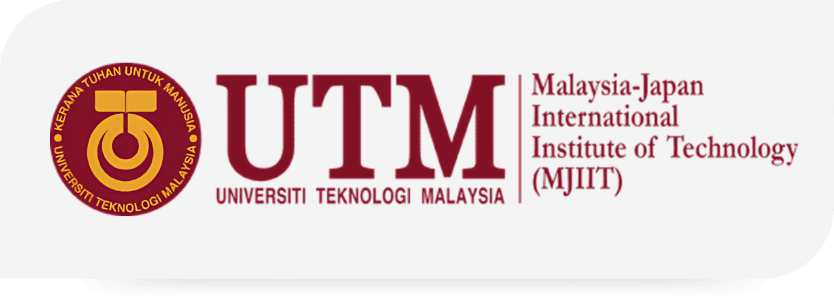A Global Movement Gains Local Ground
The integration of environmental, social, and governance (ESG) considerations into financial analysis can be traced back to 2003, when the United Nations initiated the process, resulting in the publication of the “Who Cares Wins” report. This initiative catalysed the development of global standards such as the Principles for Responsible Investment (PRI), which was introduced on the New York Stock Exchange in 2006 (Dathe et al., 2022). In Malaysia, this shift materialized in 2006 with Bursa Malaysia’s introduction of its Corporate Social Responsibility (CSR) Framework, followed by progressive enhancements to sustainability reporting to align with international benchmarks, including the UN Sustainable Development Goals (SDGs) and the Task Force on Climate-related Financial Disclosures (TCFD) (Bursa Malaysia, 2022). The subsequent adoption of IFRS S1 and S2 in 2023 (by the International Sustainability Standards Board (ISSB)) and the launch of the National Sustainability Reporting Framework (NSRF) in 2024 reinforced the national agenda toward transparent and consistent ESG disclosures.
Why SMEs Must Pay Attention
As ESG expectations become embedded in capital markets and regulatory systems, small and medium enterprises (SMEs) in Malaysia are increasingly impacted by the disclosure obligations of larger firms and the expectations of their stakeholders. Under the NSRF – which is aligned with the ISSB, mandatory reporting begins in stages: Group 1 companies (main market listed issuers with market capitalization of RM 2 billion and above) in 2025, Group 2 in 2026, and Group 3 (ACE market listed issuers and non-listed companies (NLCos) with annual revenue of RM 2 billion and above) in 2027. More importantly, the requirement to disclose Scope 3 greenhouse gas (GHG) emissions, covering upstream and downstream value chain activities, commences in 2027 for Group 1, 2028 for Group 2, and 2030 for Group 3. This implies that SMEs, although not directly governed by NSRF, will be called upon by larger clients to report their Scope 1 and 2 emissions, as this data feeds into those clients’ Scope 3 reports. For SMEs, early engagement with ESG practices is not only essential for maintaining client relationships and ensuring supply chain inclusion but also serves as a strategic pathway to access sustainable financing, enhance risk management, and secure long-term business viability.

ESG Disclosure for Malaysia SMEs
To facilitate SME participation, Capital Markets Malaysia introduced the Simplified ESG Disclosure Guide (SEDG) in 2023, a modular and adaptable framework that reflects global reporting standards, such as the GRI, IFRS, and TCFD, while maintaining alignment with local instruments, including Bursa Malaysia’s Sustainability Reporting Guide (Bursa Malaysia, 2022). The SEDG framework comprises 35 disclosure of sustainability matters, categorized into basic, intermediate, and advanced levels, enabling SMEs to initiate reporting according to their current capabilities and scale up progressively. The guide spans the full ESG spectrum, including detailed guidance on environmental, social, and governance indicators, as well as detailed labour and human rights disclosures. While its adoption remains voluntary, SEDG offers a structured foundation for SMEs seeking to improve visibility, meet buyer expectations, and participate in ESG-aligned financial and procurement ecosystems (Capital Markets Malaysia, 2023).
Breaking Down the ESG Disclosure Areas
For environmental reporting, SMEs should begin by identifying and quantifying emissions, starting with Scope 1 (direct emissions) and Scope 2 (indirect emissions from purchased energy), and where feasible, estimating Scope 3 emissions using established methodologies such as the GHG Protocol. Other crucial metrics include total energy usage (with a breakdown by source), water consumption and discharge (especially in water-stress regions), waste management practices, and material consumption with a focus on resource circularity principles. On the social dimension, disclosures should encompass policies related to labour standards and human rights, practices to mitigate forced or child labour, training initiatives, employee turnover rates, diversity and inclusion metrics, occupational safety statistics, and the impacts of community engagement. Governance-related disclosures should clearly define board oversight of ESG matters, internal control systems, ethical codes, anti-corruption programs, and risk management frameworks, including those related to climate and cyber risks. Compliance with privacy regulations, such as Malaysia’s Personal Data Protection Act (PDPA), and clear incident reporting protocols are also critical.
Strengthening Local Expertise in ESG
In a demonstration of institutional readiness and commitment to sustainability, the Malaysia-Japan International Institute of Technology (MJIIT) recently facilitated a sharing session on ESG Disclosure for SMEs. This initiative reflects MJIIT’s proactive role in advancing ESG literacy and capacity building among local enterprises. The session was conducted in collaboration with key stakeholders, including the International Green Technologies Research & Development Institute (IGTI). Dr. Liew Wai Loan, representing MJIIT, contributed to the initiative as part of the institution’s ongoing efforts to provide ESG advisory support and foster a culture of responsible business practices within the SME sector. Dr. Liew is also actively involved in teaching several subjects within the faculty’s Master of Sustainable Systems (MMJS) postgraduate program, including Green Economy, Industrial Ecology and Cleaner Production, as well as Integrated Water Science and Technology.

